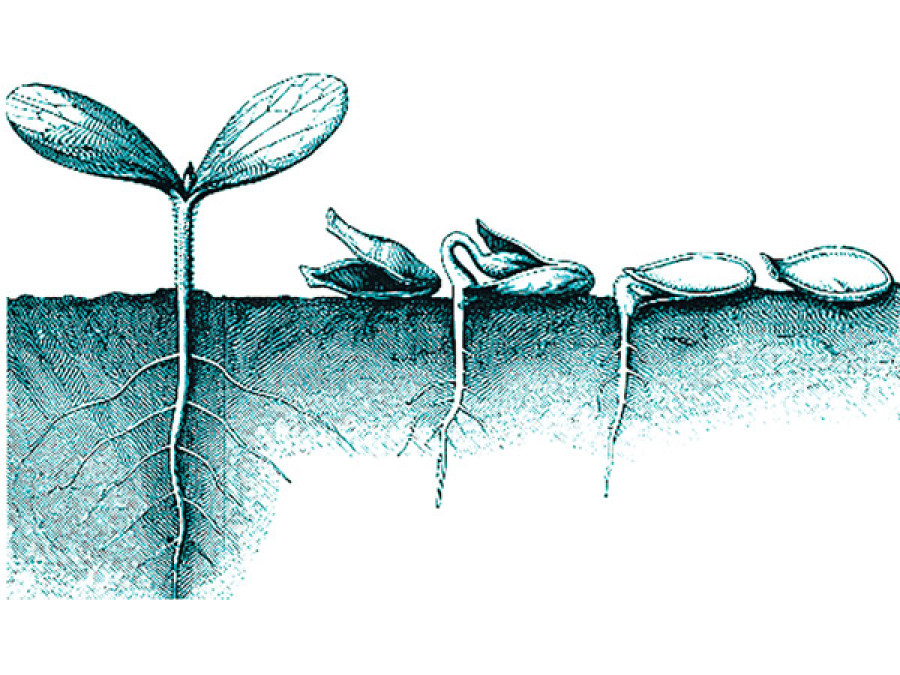Opinion
Seeds for the future
Seed subsidies can help the seed industry grow rapidly and also attract domestic and foreign investment.
Nanu Jha
Going hybrid
The seed industry in the world has progressed much in recent years. The seed industry is a highly heterogeneous and fragmented industry, with many branches and varying characteristics. Within crops, there are hybrid and non-hybrid seeds. The seeds of the non-hybrid variety can easily move from farmer-to-farmer and can be saved by farmers year-to-year. Hybrid seeds cannot move as freely as self-pollinated crops.
Since the successful introduction and widespread diffusion of hybrid corn in the US, large and profitable markets for hybrid varieties of many species have developed. Profits from the hybrid seed industry are high, compared with the low margin ‘easy to save’ seeds. Most private seed companies are increasingly directing their research and development programmes towards high profit margin seeds, in particular hybrids, despite the introduction of plant breeders’ rights.
Private-public seeds
In Nepal, the seed business of the Agriculture Inputs Corporation (AIC) has not been able to fulfill its national seed strategy. In 1999, the government had decided to split the seed business from the corporation and on May 8, 2002, the government formally registered the National Seed Company. The company has seed processing and conditioning structures in Hetauda, Janakpur, Itahari, Bhairahwa, Nepalganj, and Dhangadi and a seed storage capacity of 8,500 metric tonnes (mt). The company started business with 1800mt of seeds sales, which reached 7,500mt in the 2070/2071BS fiscal year. The quantity of seeds distributed last year was under the government’s subsidy programme and about 50 percent of total seeds were procured from private seed companies.
This was a good initiative by the government, where private seed companies/traders were equal participants in the national seed subsidy programme. If this programme is continued, it can be a good model where both the public as well as private sectors benefit equally. Presently, in the private sector, more than 1,850 seed entrepreneurs and 830 seed traders are directly or indirectly involved in the seed business and most have very low annual transactions. The infrastructure—seed processing, storage, and skilled manpower—required for seed production and supply remain inadequate. The nation will soon face serious problems with substandard seeds supply if this issue is not tackled soon.
The public and private sectors enjoy almost an equal share in cereal seeds production and supply. The share of the National Seed Company is relatively higher or equal to the private sector in wheat seeds while the share of the private sector is higher in maize, rice, and vegetable seeds. All demands for hybrid seeds are fulfilled by the private sector through imports. Imported hybrid seeds of vegetable, maize, and rice amount to nearly to Rs 900 million annually.
If possible, initial imports should be substituted by local production and technology transfers should be based on realistic demand forecasts and actual needs. Foreign and local private companies should be stimulated to develop and introduce new technologies, while being wary of technologies that could create long-term dependencies.
Attracting investment
It has been quite a challenge for the state to supply adequate quantities of quality seeds. Therefore, buffer seed stocks of major crops have to be maintained. It is also necessary to assure the supply of source seeds for desired classes for further multiplication. As per the directive of the National Seed Vision, the country has to achieve a 25 percent seed replacement rate for major self-pollinated crops and it needs around 3,000mt of source seeds for further multiplication annually. It would be most appropriate if a public organisation was entrusted for these two jobs.
If seeds subsidy programme of the government continues for some years, the seed industry will grow rapidly and can also attract domestic as well as foreign companies to invest. The financing sources and upgrading of skilled technical staff also have to be considered, as only a trained team can lead the seed industry in the right direction. This needs firm commitment from the government as well as policymakers, investors, scientists, and politicians.
Jha is an agricultural economist and former Managing Director of National Seed Company Limited




 17.9°C Kathmandu
17.9°C Kathmandu











